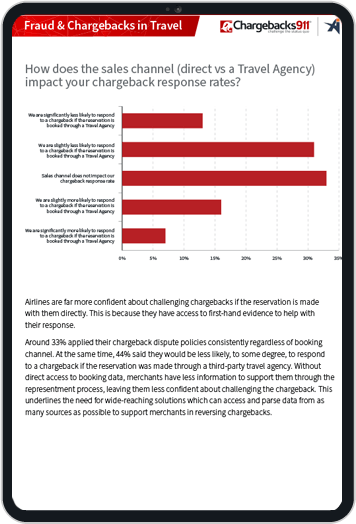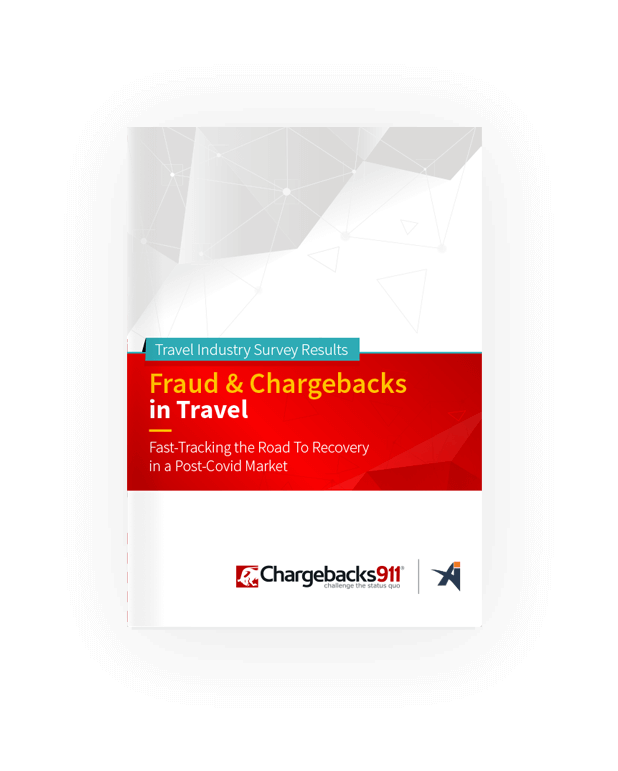Travel Companies Need to Start Preparing for Their Busiest Season Since the Pandemic
It’s almost summer… and you know what that means.

Families are about to start traveling and going on vacation. Companies in the travel space — we’re talking airlines, OTAs, rental car companies, hotels, and more — may see a surge in business. In fact, indicators suggest that summer 2024 could be a record-setting travel season.
Data from Tripadvisor's new Summer Travel Index shows that US travel is likely to exceed pre-pandemic levels. But, as we’ll see, this could lead to disgruntled customers and scam victims if travel companies don't anticipate the surge in both legitimate and fraudulent transactions. In turn, this may mean chargebacks all around.
Recommended reading
- 4 Revolutionary New Uses for Blockchain in the Travel Sector
- How Loyalty Fraud Works & How To Stop It
- Hotel Chargebacks: Causes, Rules & How to Win Disputes
- Travel & Hospitality Fraud: How it Works & How to Stop it
- Travel Forecast 2023: is AI the Answer for Fraud?
- Hotel Chargebacks: What Cardholders & Merchants Should Know
Summer 2024 May Set New Records for Travel
2023 was an incredibly busy year for travel. Despite challenges like international unrest, frequent flight delays, and rising prices, Americans still managed to prioritize their vacations. This trend is set to continue in 2024, with the Transportation Security Administration saying they’re prepared for the “busiest travel season ever.”
According to Forbes, 52% of consumers that were asked about their travel plans for 2024 said they plan to travel as much as they did last year. Another 40% expect to travel even more.
This enthusiasm is reflected in their budgets: 72% of survey respondents plan to spend upwards of $2,000 on travel in 2024, and nearly half (48%) will spend at least $4,000 throughout the year. A previous study from Forbes Advisor found that the average cost of travel for a family of four, including airfare and a three-night stay, is about $3,600. So, it’s not surprising that many Americans are budgeting high amounts for their trips next year.
Interestingly, the groups most willing to spend $4,000 or more are Millennials (62%) and Gen Z (61%). This trend could be due to several factors.
Millennials and Gen Z tend to value experiences over material goods, often choosing to invest in memorable trips rather than material items. The influence of social media plays a significant role, too, as travel is frequently showcased as part of an aspirational lifestyle. Seeing peers post about their exotic vacations can motivate others to plan and budget for similar experiences. Plus, younger generations often seek a work-life balance that allows them to explore new places and cultures.
Why This Could Be a Problem
Overall, the eagerness to travel and the willingness to invest significant amounts into these experiences suggest a robust travel outlook for 2024. But, while the travel boom is exciting, it brings some big challenges for the industry.
Many businesses might be unready for the influx of travelers. This can lead to overbooked flights, hotel shortages, and poor customer service due to understaffing or logistical problems. If these issues crop up, they could create many unhappy customers.
Unhappy customers are likely to voice their complaints on social media, leading to negative publicity for travel companies. Even worse, unresolved issues could result in an increase in chargebacks.
Chargebacks happen when customers dispute charges on their credit cards. This could happen because they didn't get the service they paid for, or were unhappy with the quality of what was delivered. A high number of chargebacks can hurt your business and strain your relationships with credit card companies.
Fraudsters Taking Notice, Too
In addition to chargeback resulting from unsatisfactory service, the travel surge also opens the door to more fraudulent charges as well.
Scammers often take advantage of busy travel seasons. They know that the high volume of transactions makes it easier for fraudulent activity to go unnoticed. This further feeds into the dispute and chargeback problem mentioned above.
Travelers are at risk for scams like fake travel deals, or phishing emails sent by scammers posing as airlines or hotels. They could even create problems down the road, like unauthorized charges resulting from compromised payment systems or data breaches.
All the issues outlined above highlight why this year may be particularly challenging. If travel companies want to take advantage of the 2024 travel boom without cannibalizing their own revenue, they need to verify that they’re optimizing their customer service, security, and infrastructure right now.
What Can Travel Companies Do?
As we head into the peak travel season, operators need to gear up to meet the increased demand and tackle potential challenges. After all, your business will absorb the losses from any lax customer service or security issues, so you will need to be ready to combat issues proactively.
Here’s a look at some key areas that need attention to tackle these issues from a business perspective:
How Should the Industry Prepare?
The onus to meet and exceed customer travel demands shouldn’t just be left to individual businesses in the travel space alone.
As we established, 2024 is projected to be a landmark year for travel. So, the broader industry should be working together to help streamline operations and improve customer service across the board. After all, when companies work together toward a mutual goal, the industry, as a whole, is better for it.
Here are just a few ideas travel industry stakeholders might consider:
















